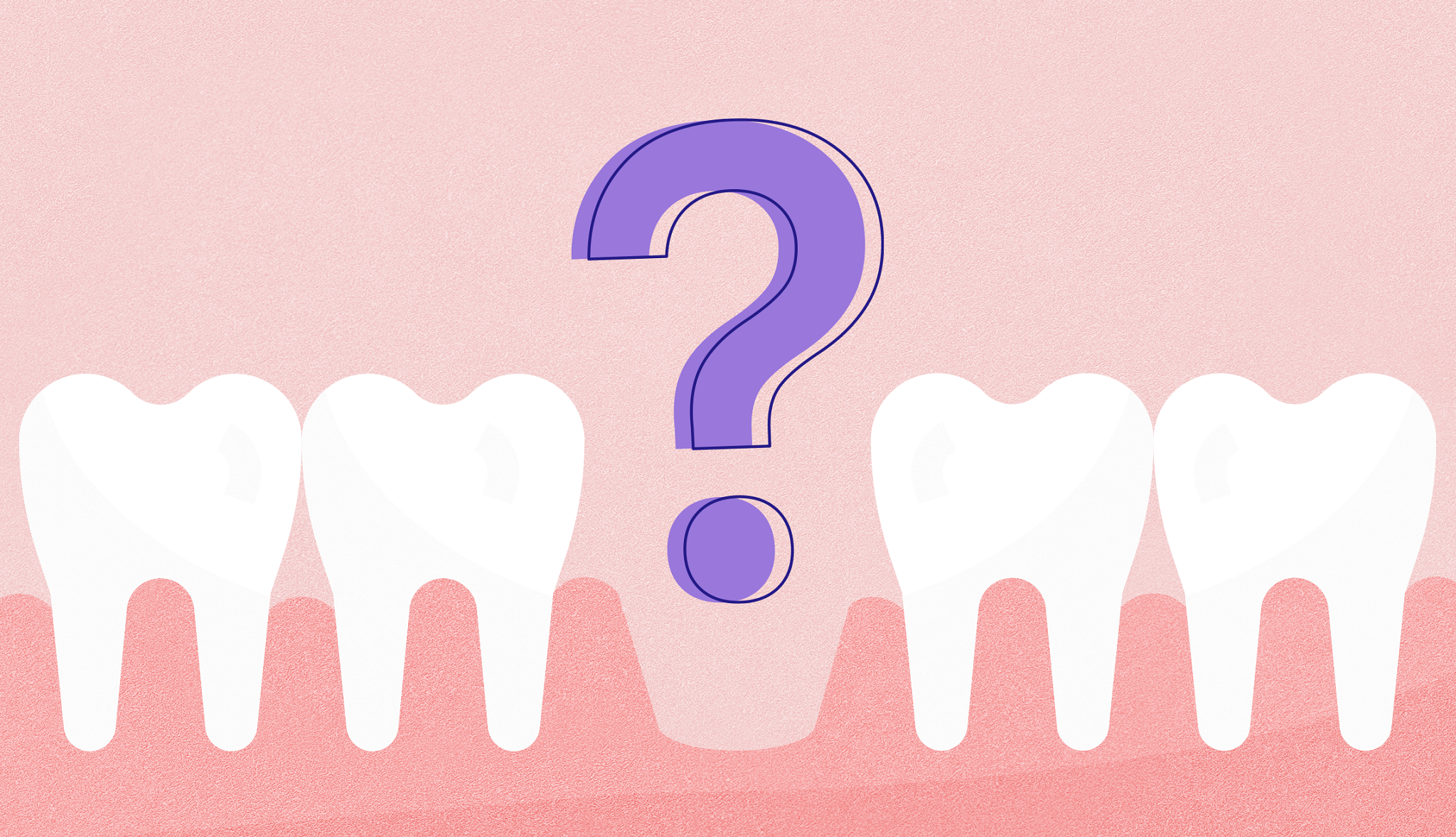
Replacing Missing Teeth: Costs and Options
- Select a language for the TTS:
- UK English Female
- UK English Male
- US English Female
- US English Male
- Australian Female
- Australian Male
- Language selected: (auto detect) - EN
Play all audios:

Since these options require at least several weeks, if you have a missing tooth in a prominent area (such as a front tooth), you can ask your dentist about a temporary tooth. Also known as a
“flipper,” it can sometimes be made in as little as 24 to 48 hours in your dentist’s office. CHOOSING A DENTIST OR DENTAL SPECIALIST FOR YOUR REPLACEMENT TOOTH OR TEETH “Many general
dentists do extractions, dentures, implants and crowns,” says Cram. But you may prefer a specialist, such as a periodontist or an oral surgeon, to extract teeth and insert implants. Either
your dentist or a prosthodontist will build the superstructure, the crown, on top of the implant,” Cram says. If your dentist doesn’t handle the type of procedure you need, they will refer
you to a specialist. MEDICARE AND OTHER INSURANCE COVERAGE FOR TOOTH LOSS For the most part, Medicare doesn’t cover routine dental coverage, such as cleanings and fillings, or more
comprehensive dental work, such as tooth extractions, implants and dentures. Most Medicare Advantage plans offer basic dental coverage for oral exams, cleanings and X-rays without a
deductible. Some Medicare Advantage plans offer coverage for more extensive services, such as root canals and extractions, generally with a 50 percent copay, and an average annual cap of
$1,300, according to a Kaiser Family Foundation analysis. Employer-sponsored, ACA Marketplace dental coverage and private dental insurance typically offer similar coverage to Medicare
Advantage plans, according to the KFF analysis: Routine services are covered at 100 percent, and more comprehensive services are covered at 50 percent, after meeting a deductible. PAYMENT
PLANS AND LOWER-COST TEETH REPLACEMENT OPTIONS Replacing a lost tooth can be expensive and unexpected. If you don’t have the budget to pay for dental services immediately, Cram suggests
asking your dentist if they will work with you. DENTAL SCHOOLS CAN CUT COSTS “Dental schools are underutilized for many, many patients,” says Mark Wolff, Dean of the University of
Pennsylvania School of Dental Medicine. You may be surprised to learn that in addition to routine dental care, you can also get tooth replacement procedures at dental schools. In addition to
new dental students, schools have practicing dentists who are learning new specialties, Wolff says. “In all cases, we supervise very closely to make sure that the care that’s delivered is
always good, always safe care. It’s a true quality-assured practice.” Wolff says his dental school has a 95 percent satisfaction rate. The best part? Most of the procedures that a dental
school in each area offers are between 30 and 50 percent less than those same procedures in private practice, says Wolff. You can find out if you’re located near any of the 70 U.S. dental
schools by searching the Commission on Dental Education’s database. GOVERNMENT-FUNDED PROGRAMS The federal government’s Health Resources & Services Administration (HRSA) provides
community health centers (CHC) nationwide, and 90 percent of them provide additional dental services, including teeth replacement with bridges, implants and dentures, depending on income
levels. You can find a local health center using HRSA’s Find a Health Center tool. THE BEST OPTION IS PREVENTION Losing a tooth as an adult is fun, said no one, ever. But losing teeth as an
adult isn’t a given, either. “Actually 90 to 95 percent of all dental problems that could cause you to lose your teeth are preventable,” Cram says. “And they’re preventable by doing simple
things: brushing twice a day, flossing once a day, and seeing your dentist periodically for checkups, X-rays and cleanings."
